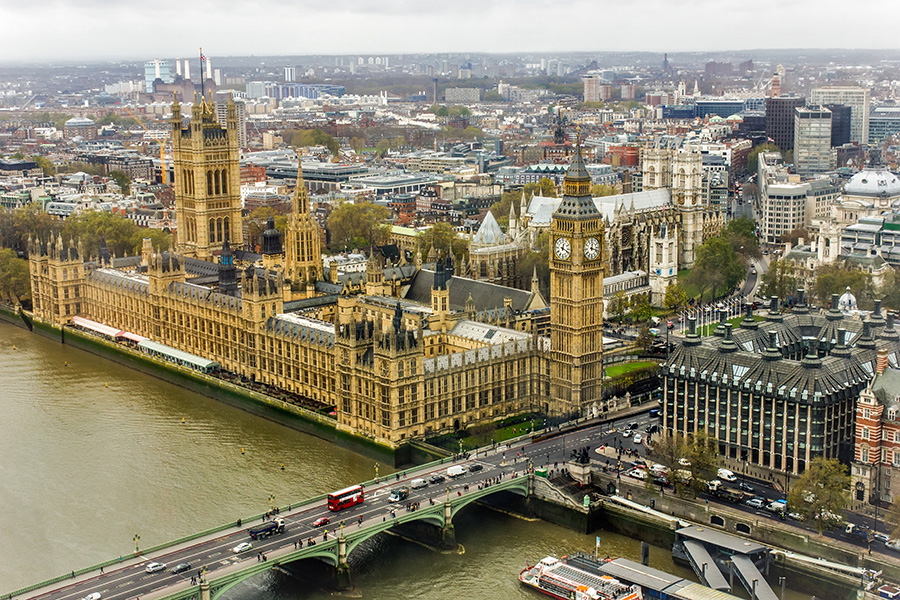UK gambling white paper to be published today

Two-and-a-half years in the making, Britain’s long-delated gambling white paper will finally see the light of day.
UK.- It is expected that today (Thursday April 26), the UK government will finally publish its long-delayed gambling white paper, which will outline its proposals for updating the 2005 Gambling Act. The contents of the paper have been the subject of intense debate and speculation since the legislative review began back in the autumn of 2020.
In the intervening period, responsibility for the gambling white paper has passed through seven pairs of hands. The review began under Nigel Huddleston, before the gambling brief was passed to John Whittingdale and then Chris Philp, who said the paper was about to be published before he quit his post in protest at Boris Johnson’s leadership last July.
After that, the gambling brief went to Damian Collins, who survived Liz Truss’s brief stint as prime minister but was replaced by Paul Scully after Rishi Sunak took the helm, and Stuart Andrew after the latest cabinet shakeup. Meanwhile, overall leadership of the DCMS has passed through four people: Oliver Dowden, Nadine Dorries, Michelle Donelan and now Lucy Frazer.
According to leaks published in The Times, the implications for gambling sector will not be as severe as some had feared. Proposals in the gambling white paper are believed to include:
- A £2 maximum stake on online slot for players aged under 25 and £15 for other players (there’s a suggestion this may be opened to consultation rather than imposed immediately. There was originally expected to be a blanket £2 maximum stake for all, bringing online slots in line with FOBTs. Some companies, including Flutter, have already introduced a £10 limit).
- A new limit on the speed of online slots.
- Soft affordability checks (the mechanics are not yet clear, but the idea put forwards before has been for frictionless credit checks that the customer will often not notice. It’s been suggested that checks will apply when a player loses £1,000 in 24 hours, or £2,000 over 90 days).
- A 1 per cent industry levy on gambling revenue to pay for problem gambling research, prevention and treatment (this is something that has been off and on the cards over the past two years. Voluntary contributions are already made at this level by many of the biggest bookmakers);
- The opening of a consultation around potential advertising limits (the Premier League has already agreed to a voluntary ban on front-of-shirt gambling sponsorship to try to head off calls for a complete ban.
- More powers for the Gambling Commission to tackle black market operators.
- Creation of a gambling ombudsman
Gambling white paper response
Of note, some proposals in the white paper are for new consultations rather than defined measures. This may be what Scully was hinting at when he was insisting that the white paper wouldn’t be the end for gambling reforms. While the industry may be grateful for no major restrictions on gambling advertising in the paper itself, the start of more consultations means still longer to wait for clarity.
This has been criticised by the opposition as well as gambling stakeholders. Labour’s shadow culture secretary Lucy Powell said: “Gambling regulation has not kept pace with the huge explosion there is with gambling online and on smartphones, with few checks and balances. We’ve had ten different ministers in charge of gambling policy since a White Paper was first promised with dire results for those harmed by unscrupulous practices.
“There is broad consensus in parliament that we need to update analogue gambling regulation so it is fit for the digital age, yet the Conservatives’ failure to govern means this is still some way off.”
Michael Dugher, CEO of the industry lobby group, the Betting and Gaming Council, said: The truth is, throughout all the changes and constant delay, we have worked extremely hard and closely with the Government to help produce a wide-ranging package of reforms which builds on the significant changes and improvements made in recent years by our members.
“From the start, we wanted to see balanced, proportionate and effective reforms that were genuinely evidence-led. Reforms which would further protect the vulnerable and young people, while continuing to use technology to target the 0.2 per cent of adults who are problem gamblers, whilst not (as the Secretary of State Lucy Frazer rightly says) spoiling the enjoyment of the many millions who bet perfectly safely and responsibly.
“A particular focus of our work has been to secure genuinely ‘frictionless’ enhanced spending checks which further protect the vulnerable, a new Ombudsman to improve consumer redress, and overdue plans to modernise the regulation of UK casinos – all issues we at the BGC have campaigned for.
“Given our previous support for enhanced and mandatory funding for Research, Education and Treatment to tackle gambling-related harm, we also stand ready to deliver a new mandatory levy, as well as consult on new stake limits for online slots, welcoming in particular further protections for young people.”











